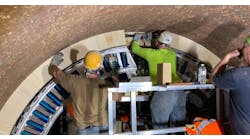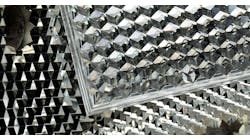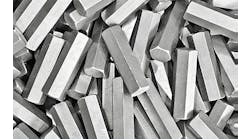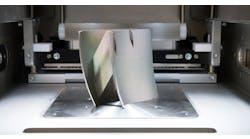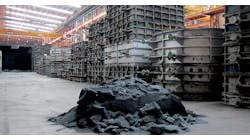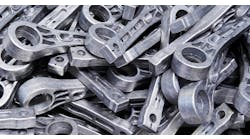The U.S. Dept. of Energy identified 13 manufacturing research projects to receive over $54 million in funding support. Describing the various projects as efforts toward “innovative technologies and materials” DOE said the investments would help to supply domestic manufacturers with the “cutting-edge tools, techniques and processes they need to compete successfully in the global marketplace.”
DOE’s Office of Energy Efficiency and Renewable Energy’s Advanced Manufacturing Office (AMO) will distribute the funds. AMO forms partnerships with industry, small business, universities, and others to pursue emerging technologies that can expand or create new markets, according to Dr. Leo Christodoulou, AMO program manager.
U.S. Energy Secretary Steven Chu said the 13 projects were competitively selected to demonstrate the Energy Department's commitment to clean energy technology. "When it comes to clean energy," Chu said, "[it] should be invented in America, made in America, and sold around the world."
Notable among the projects earning DOE support is a General Motors concept for “super-vacuum diecasting” of a new magnesium alloy, reportedly offering potential for a 50% energy savings compared to the current production sequence for stamping, assembling, and joining automotive doors. “By substituting magnesium for steel inner panels, car doors could weigh 60% less, resulting in serious fuel economy improvements and carbon emission savings,” DOE stated. It will give $2,672,124 to GM and its research partners, Meridian Lightweight Technologies and The Ohio State University.
Also earning DOE support is a project led by the American Iron & Steel Institute to commercialize a “flash ironmaking” process that sprays iron ore directly into a furnace chamber and uses natural gas, hydrogen, or syngas as a reducing agent to replace the blast furnace process (and thereby, the cokemaking process), which is energy- and capital intensive. DOE said this project The University of Utah, Berry Metal Co., U.S. Steel Corp., The Timken Co., and ArcelorMittal USA and offers potential to reduce ironmaking energy consumption by 32-57%.
Another concept to be supported is a program at The University of Utah to develop a new metallurgical process for producing titanium components for aircraft and automotive parts. Ford Motor Co. and Reading Alloys/Ametek are supporting the development, too. It involves a lower melting temperature and a reduced number of post-processing steps. That project will receive $1,460,285 from DOE.
The other projects selected for DOE funding are led by:
• Air Products and Chemicals, Inc., Allentown, PA ($1,200,000)
• Delphi Automotive Systems, LLC, Rochester, NY ($3,700,000)
• Lyondell Chemical Co., Newtown Square, PA ($4,500,000)
• MEMC Electronic Materials, Inc., St. Peters, MO ($3,680,000)
• MIT, Cambridge, MA ($1,000,000)
• PolyPlus Battery Company, Berkeley, CA ($8,999,920
• Research Triangle Institute, Research Triangle Park, NC ($4,800,000)
• Teledyne Scientific and Imaging, Thousand Oaks, CA ($2,110,000)
• The Dow Chemical Company, Midland, MI ($9,000,000)
• Third Wave Systems, Inc., Minneapolis, MN ($4,069,882.)
By investing in these technologies, the Department is supporting "an economy built on American manufacturing, American energy, and skills for American workers." Christodoulou said.
